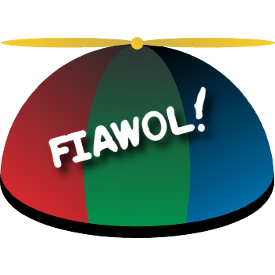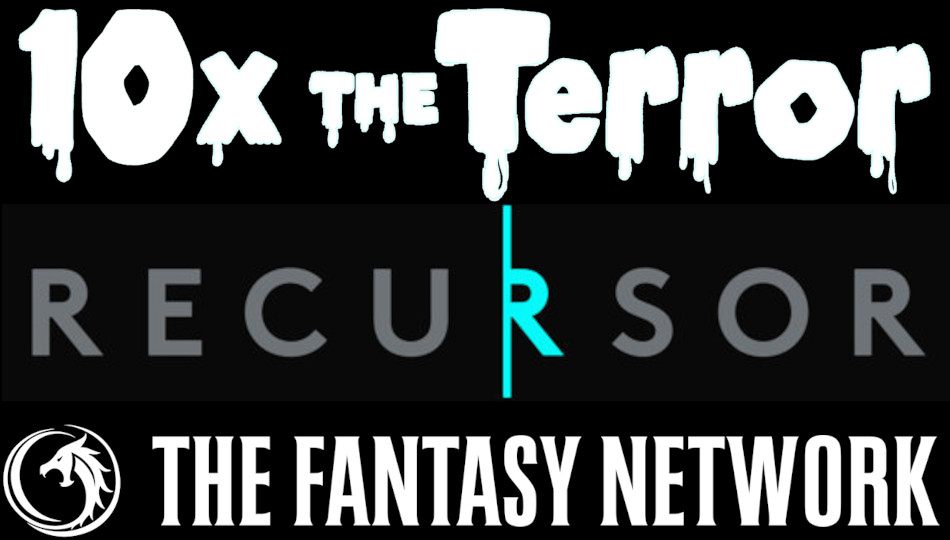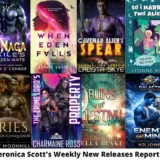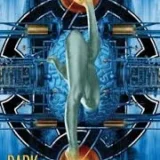
OBIR: Occasional Biased and Ignorant Reviews reflecting this reader’s opinion.

WHEN WORDS COLLIDE: A “Virtual” Triumph
It was an exciting weekend. I’m just going to give a quick impression of my experience with the online When Words Collide Writers Festival. Numerous recordings are being posted online. Feel free to check them out.
Let me state that I believe the volunteers who put on the festival set the bar very high, to the point where it can be seen as a role model for others to emulate. Nothing less than a magnificent triumph with hardly any glitches.
First of all, it was free to anyone who wanted to attend.
Second, it was ridiculously easy to navigate. All you had to do was download the program which listed and described every event, with a link at the bottom of each description. Just click on the link at the appropriate time and you were in. Unless the item had already exceeded its cap of 100 participants. I was surprised at how many sessions maxed out. Amazing.
There were essentially four types of events:
First, presentations on you-tube or facebook where you just sat back and enjoyed the show.
Second, Webinars featuring 4 or 5 panelists where the attendees were not on screen and could not verbally interrupt, and chat comments were seen only by the panelists (depending on how the host set things up).
Third, relatively open zoom sessions where the attendees were sometimes visible and with chat comments seen by all.
Fourth, wide-open Zoom discussions where anyone could speak.
There were a few technical problems, rapidly resolved, and a number of Zoom Bomber intrusions, but all were dealt with quickly. Considering it was an all-volunteer technical staff, the “professionalism” of the volunteers was remarkable. So far, the best and most effortless and efficient online convention I’ve witnessed to date.
So much for the technical aspects. Now I’ll give you a few quick impressions of the panels I attended. Keep in mind that I paced myself in order to stay sharp. So, I didn’t watch panels continuously throughout the day. Several times I broke away to lie down for a rest. Not necessarily to nap, merely seeking to rest my eyes and my thoughts. Very much like my behaviour at actual cons pre-pandemic. Typically I’d start the day moderating a three-hour writers workshop, then go to my room and lie down for an hour. Once back up, I might attend a panel or two, spending the intervening time sitting in lounges talking to assorted friends and fen. A very laid-back approach. I tried to do the same with this virtual Festival.
FRIDAY, August 14, 2020.
1:00 PM – Knowing the Rules and When to Break Them: Jonas Saul, Holly Schofield, Carol Parchewski, & Talena Winters.
Being an editor, I was keen on hearing how the panelists viewed the sanctity of Grammatical rules. Especially since I know bugger all about such, it being a subject too dry to stick in my brain. All my editing is done by gut feeling.
I was very pleased to discover they all put emphasis on my personal mantra of doing nothing to distract the reader, of ensuring smoothness of flow with no jarring intrusions to knock the reader out of the story. That be my primary goal when editing contributions to Polar Borealis. I was amused that there appeared to be a consensus that attempting a “literary” style often proved the worst offender. In theory writing should be all about clarity and avoiding confusion. I agree. At the opposite extreme, “texting” conventions were seeping into submissions, a practice to be shunned and abhorred.
It was pointed out, what with millions of books being self-published every year, it is now literally a “buyer’s market.” A writer would have to be insane to risk annoying readers with an obtuse or obstructive style. Far too easy for readers today to toss the book aside, so to speak, and try someone else until they find someone they like. In short, shoddy writing is the path to oblivion. It leads to negative word-of-mouth spreading. Writers have to remember to try their best at all times. That means edit, edit, and edit some more.
Jonas referred to The Bestseller Code: Anatomy of a Blockbuster in which Jodie Foster and Matthew L. Jockers analyzed the heck out of 5,000 bestselling novels. Among other things, the authors of those novels avoided colons, semi-colons, and exclamation points. Hmm. Interesting.
2:00 PM – Burnout—It’s all in Your Brain: A Neurosurgeon’s Perspective, with Swati Chavda.
This was fascinating. We all experience burnout. In fact for some it is a permanent mode of thought and feeling. As someone who suffered from on-again off-again bouts of extreme depression for about forty years (seem to have grown out of it, thank goodness), I was interested if there was any link or comparison to burnout.
As Swati pointed out, most people tend to think of burnout as a temporary mood, similar to fatigue, that requires only rest and then gung-ho will-power to set right. Well, yes and no. Turns out burnout is a genuine psychological syndrome triggered by exposure to chronic stress. Inevitable symptoms include exhaustion, feeling of detachment, sense of ineffectiveness, lack of accomplishment, unwillingness to get out of bed and face the new day’s challenges, and, most interesting of all, cynicism. To sum up “I’m tired and what’s the use of coping with anything?” Hmm. I’m not sure how this is different from depression. Seems very similar. Maybe I suffered from perpetual burnout much of my life?
Pont is, if you suffer from burnout it’s not your fault. You’re not some mentally deficient idiot incapable of common sense, but rather a victim of a common disorder virtually all people face off and on over the course of their lives. I would argue the stress of trying to pay the bills while struggling to earn a living income from writing is a common source of stress and burnout among writers. So, what’s to be done?
The solution is complicated in that it involves many areas involving self-awareness and self discipline. First, get a grip on your resources. Meaning, make sure you have enough income for your needs, enough food, enough entertainment to please and distract, so that you don’t worry over the basic necessities of life. Put your house in order, in other words. Get rid of all the mundane sources of stress.
Second, reignite your passion for writing. Watch out, too much passion can be destructive. Beware of dopamine addiction. This is the drug your brain produces to create a pleasure high. Often, simply accomplishing a goal triggers it. But the higher the goals, the less effective the dopamine. Ultimately, no matter what you accomplish, you become immune to a pleasure response. Accomplishment becomes drudgery. So, dial back your expectations. Aim for mini-goals easily accomplished. This leads to a low-key but steady production of dopamine at useful levels. You’ll be happier and more content with your progress. (At any rate, that’s how I interpreted what Swati was saying.)
Third, deactivate your Amygdala. Apparently, that’s the part of the brain that floods your emotions and thoughts with flight or fight syndrome in the face of extreme stress. Try to remember why you wanted to take up writing in the first place. Cultivate the mind of a child (I do! Not much choice at my age, actually), and wonderingly ask “why?” about everything that interests you. Approach life with your sense of wonder. Stop thinking too much. Don’t worry about life based on false and cynical assumptions derived from past experience. Explore life like an unusually intelligent newborn. Find the wonder. This is the path to joy. Makes sense to me.
There was a lot more advice in this lecture. Far from being hippie-dippy stuff, it was all based on typical psychological behaviour as directed by your brain chemistry and the proven means of altering your brain chemistry to improve your moods and viewpoint. Nice to have confirmed that human thought is a physical reaction to the real world around you and that concrete action can be undertaken to avoid needless mental suffering. A positive lecture, indeed!
3:00 PM – Ten Things I Wish I’d Known, with Mark Leslie Lefebvre, Angela Ackerman, Susan Calder, and Sarah Kades Graham.
I expected this to be amusing and possibly a source of practical suggestions to pass on to beginning writers. I was not disappointed. Mark remarked he originally thought that writing was just a matter of sitting at his typewriter and typing. He quickly found out he was spending much of his time preparing self-addressed stamped envelopes and keeping track of what he had or had not taken to the post office. Susan commented she was horrified to discover just because she liked her MS didn’t mean an editor would. Angela mentioned she, too, had thought writing would be the hardest part but felt keeping on top of ongoing changes in the industry was far more challenging.
Much advice I don’t remember who said it but it all hit home. For instance, doing intensive research is just a form of procrastination because it’s a great way of avoiding criticism. Best to do just as much as you need to set the scene and then get cracking on the writing. Or, an extremely important point to ponder, you can’t edit what you haven’t written. Equally important, never show your work too early to other people. Their comments may kill your enthusiasm dead. (I know, that’s something Ed Wood Jr. might have written, but it gets the point across.)
Basically, this panel brought up myriad house-keeping matters involving procrastination and how to avoid it. Or to put it another way, don’t waste time thinking about writing, just do it!
4:00 PM – Open Office Hours with Mark Leslie Lefebvre.
An open discussion with Mark and several other authors giving advice. Very much like an open Zoom meeting. Even I chimed in once and a while. Mark had some particularly interesting suggestions to make. For example, don’t be afraid to offer your e-books for free on occasion. Apparently it’s fairly common for a reader, if they really like your book, to turn around and order a hardcopy to add to their physical library. I certainly hope that’s true and very common!
On the other hand, He didn’t think social media was of much use in hyping your book. He went so far as to say you don’t need to push your books on social media. People resent it. Far better to concentrate on presenting yourself as a likeable and interesting personality. Even then, the fact you may have 4,000 followers doesn’t mean more than a few of them will bother to buy your books. It’s just a forum for social interaction. Push your authentic self as widely as possible on social media. In effect, social media doesn’t sell books, you do, just by being yourself. I confess I’m not sure I buy this completely, but obviously it is what works for Mark, so worth considering.
Someone brought up the point that if a publisher charges for services of any kind, there’s a strong probability they make their money off the authors rather than from selling their books. Definitely a case of “Writer beware!”
Quite a bit of more technical topics discussed, but I was getting tired, and after this panel was over I lay down for a while, then got up and cooked supper. That invigorated me. True, I missed a bunch of good programming, but hey, every item I watched meant I was missing four other panels. The price you pay when faced with five track programming. So, I didn’t feel particularly guilty taking a couple of hours off.
7:00 PM – SF Canada Online Social, hosted by Ira Nayman.
As a publisher and editor I am a member of SF Canada, which is a sort of SF&F writers union somewhere around 200 in number, I believe. I was happy to converse with authors I’ve known for years, happy to see and talk to authors I’d only corresponded with, and equally happy to see newcomers bouncing in to learn what SF Canada people were all about. I spent so much time nattering my memory circuits went dormant and all I remember is that I had a thoroughly good time. Pretty darn good substitute for the kind of social gathering that happens at in-person conventions.
I vaguely recall talking with Ira Nayman about hearing Robert Forward, author of Dragon’s Egg and Starquake (among other hard science SF novels) speaking at a Vikingcon in Bellingham years ago. Forward mentioned he owned a castle in Scotland, but not because of his earnings from his books, but because of his income as a scientist working for the US military. Claimed he knew how to build an engine that would get a spacecraft to Mars in a week, and that he’d experimentally fired an anti-missile laser “death beam” inside the hull of a 747. At the time I figured he was just spinning yarns. I don’t know about the zippity-do Martian flivver, but the anti-missile laser weapon actually works and is currently in production I hear. Yes, I did ask questions about the hyperfast spacecraft, but Forward replied with the classic line “If I told you I’d have to kill you.” I confessed to Ira I was still wondering about that gizmo years later.
8:00 PM – Virtual Pool Patio Party, hosted by Mark Leslie Lefebvre.
Actually, it began at 7:00 PM, but I switched to it after the SF Canada Social was over. Supposed to end at 8:30 but kept on for quite a bit longer. Idea was to replicate a social event normally held beside the pool in the lobby of the When Words Collide hotel. Again, memory brain cells switched off. But I know I had great fun. Many of the people present were the volunteers behind the festival, some of them veterans of many years. It was delightful to meet them and learn something about them.
Eventually things wound down and so to bed. Tired, but happy.
SATURDAY, August 15, 2020.
Programming began at 10:00 Am, but I slept in. Didn’t attend anything till Noon.
Since I’m running out of room, I’ll skip most of Saturday’s and Sunday’s programming and just go straight to the Aurora Awards. A complete version of this con report will be in the September issue of BCSFAzine (#544), the newsletter of the B.C. SF Association.
7:00 PM – CSFFA Hall of Fame Inductions and Aurora Awards Ceremony, with host Mark Leslie Lefabvre.
2020 CSFFA HALL OF FAME INDUCTEES
Heather Dale – Filksinger composer and musician
Cory Doctorow – Author, “Down and Out in the Magic Kingdom,” “Little Brother,” etc.
Matthew Hughes – Author, “A God in Chains,” “What the Wind Brings,” etc.
2020 AURORA AWARD WINNERS – ( for works produced in 2019 )
Best Novel
The Gossamer Mage – by Julie E. Czerneda, DAW Books
Best Young Adult Novel
Bursts of Fire – by Susan Forest, Laksa Media Groups Inc
Best Short Fiction
This Is How You Lose the Time War – by Amal El-Mohtar and Max Gladstone, Saga Press
Best Graphic Novel
Krampus is My Boyfriend! – by S.M. Beiko, Webcomic
Best Poem/Song (Tie)
At the Edge of Space and Time – by Swati Chavda
Bursts of Fire – by Sora, Theme song for book trailers.
Best Related Work
On Spec Magazine – Diane L. Walton, Managing Editor, The Copper Pig Writers Society
Best Visual Presentation
The Umbrella Academy – Steve Blackman, Dark Horse Entertainment V Wars (Season 1)
– William Laurin and Glenn Davis, High Park Entertainment
Best Artist
Dan O’Driscoll – covers for Bundoran Press and cover for On Spec Magazine #110
Best Fan Writing and Publications
Graeme Cameron – Polar Borealis Magazine, Issues #9 to #12, publisher & editor
Best Fan Organizational
Derek Künsken and Marie Bilodeau – co-chairs, Can-Con, Ottawa
Best Fan Related Work
Derek Newman-Stille – Speculating Canada
This was a marvel of flawless efficiency. Mark Lefebvre was broadcasting from his apartment in Waterloo, Ontario, with his wife Liz furiously handling the technical aspects via computer off-camera to the left. Everything was 99.99% glitch free.
Clint Budd, the chief judge of the panel in the juried Hall of Fame selection process, introduced the inductees. Then Clifford Samuels, in charge of the Aurora Awards voting sub-committee, spoke about the Auroras and revealed the new look of the award. I thought it wonderful that the history of both topics was kept to an absolute minimum. The focus was entirely on the current nominees and the winners to be announced. This in striking contrast to the recent Hugo awards.
Using my category as an example, the name of the category was shown in a pleasant slide with the Aurora Borealis over a forest as background. Then Mark read out a description of what the category was all about. Followed by a “slide show” depicting each nominee with Mark’s pre-recorded voice reading out the names of the nominees correctly. Again, in pleasing contrast to the Hugos. Back to Mark, showing him opening the envelope and announcing “And the winner is, R. Graeme Cameron, Polar Borealis, Editor.”
Cut to me (I’d been lurking in the “green room”) gaping in astonishment. Mark congratulated me, than invited me to have my say. I had my speech attached to a clipboard leaning against my laptop screen. In my nervousness I added about 30 extra words. The whole thing went more or less like this:
“Wow. Needless to say, I am very pleased to accept this award. To explain … my retirement hobby … is promoting genre authors, poets, artists, editors and publishers. It’s because it’s loads of fun … and is its own reward. So, winning an Aurora … for my hobby activity … is icing on the cake. Makes it even more fun.
Thing is, there’s an incredible amount of Canadian talent in the field today. Anything we can do … you and I … as fans and readers … to promote and support these wonderfully creative people … is vital and necessary in these hard times.
And that’s why I pursue my hobby … why I support the Auroras … why I support Canadian genre fiction. Not only for whatever good my support does … but for the sheer fun of it.
Fact is I love to celebrate what other people in this wonderful and diverse field do … both the professionals and the fans … heck of a retirement hobby. I recommend you take it up now, even before you retire … Thank you, everybody!”
I was concentrating so hard on enunciating properly and putting passion into my voice (as opposed to my normal monotonous drone) that I literally didn’t see myself even though I was leaning forward and my face rather filled the screen. As for my hand gestures, which my older brother commented “were quite good” I wasn’t even aware of them. Purely unconscious.
I spent the rest of the day in a happy daze. Indeed, for several days following. And yesterday my Aurora Award arrived in the mail. Still riding a high.
CONCLUSION:
As mentioned, the full review will be in the upcoming BCSFazine. In case you don’t see it, I trust I’ve written enough about this festival to convey the flavour of it, to convince you how much fun it was. Kudos to the organizers and volunteers who did such a magnificent job!
Watch the Aurora Award ceremony here < 2020 When Words Collide You-Tube channel >
Note: Other videos from the 2020 WWC will be available at the above site starting possibly as early as August 24th.










The presentation of the Aurora Award for Best Fan Writing and Publications, and Graeme’s fine acceptance speech still further promoting Canadian SF, can already be viewed at 45:36-48:52 of https://www.youtube.com/watch?v=jzGXK2gSEkA .